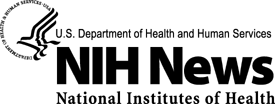Please note: The call center closed September 28, 2005 at 4:00.
NIH Opens Up Medical Consultation Line to Patients Affected
by Hurricane Katrina
The National Institutes of Health today announced that it is expanding its round-the-clock
telephone medical consultation service previously available to health care providers
to all patients affected by Hurricane Katrina. Medical experts at NIH, academic
medical centers and the nation's medical professional societies are available
24 hours a day, 7 days a week, to provide medical consultations on a wide array
of medical problems. The toll-free number is 1-866-887-2842.
"The medical needs of those in the Gulf Coast region are enormous and we mobilized
immediately to offer this service for our colleagues providing care in often
difficult situations," said NIH Director Elias A. Zerhouni, M.D. "Our goal is
to match national experts with care providers dealing with difficult or complicated
medical cases. We also want to help patients in the affected area who were on
clinical trials and receiving treatment."
Consultations are available in environmental/toxic concerns, infectious diseases,
tropical/geographical medicine, ophthalmology, oral medicine, psychiatry, cardiac/pulmonary
diseases, genetic diseases, pediatric endocrinology, pediatric metabolism, obstetrics/gynecology,
cancer and adult endocrinology.
"If a consultation is needed in other areas, we'll make the connections," said
Dr. John I. Gallin, director of the NIH Clinical Center and consultation project
coordinator. "Our partners at the nation's academic medical centers have generously
volunteered their expertise in this initiative, and many medical societies have
mobilized their membership to provide clinical advice as needed."
So far consultation requests have ranged from questions about drug dosages for
treatment of tuberculosis to the need for prophylactic antibiotics for evacuees
being seen in an emergency room, he noted.
Physicians caring for patients on NIH-sponsored clinical trials that have been
interrupted because of the Katrina disaster-or clinical trial patients themselves-can
call the consultation line for options on continuing therapy under a clinical
trial. "Our commitment is to do what we can to help protect the lives and health
of patients," said Dr. Gallin.
For more information about NIH responses to the Katrina disaster, go to the
NIH website, http://www.nih.gov. More details
for cancer patients, their families, and physicians are on the National Cancer
Institute's website, http://www.cancer.gov/katrina.
The National Institutes of Health (NIH) — The Nation's Medical Research
Agency — includes 27 Institutes and Centers and is a component of
the U. S. Department of Health and Human Services. It is the primary Federal
agency for conducting and supporting basic, clinical, and translational medical
research, and investigates the causes, treatments, and cures for both common
and rare diseases. For more information about NIH and its programs, visit http://www.nih.gov. |

